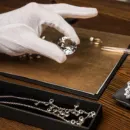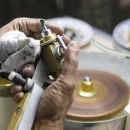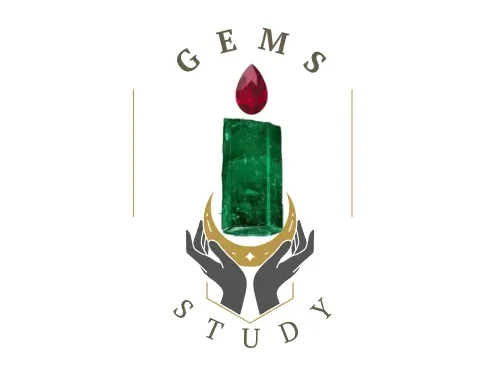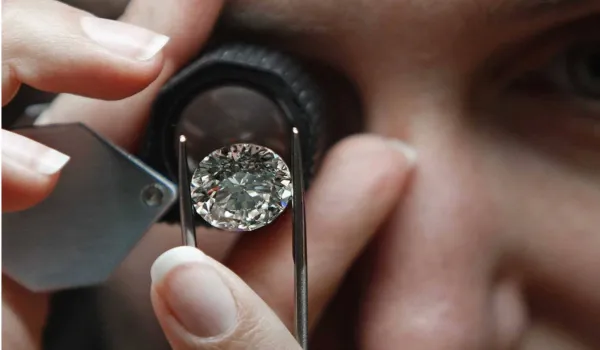What is a gemologist?
Gemologist play a vital role in the gem world as they help identify, classify and evaluate these precious stones. Their expertise is essential to both consumers and the jewelry industry as it ensures the authenticity and quality of gemstones. In this blog, we explore the different types of gemologists, their areas of expertise and the importance of their role in the gem industry.
Table: Types of Gemologists and Their Expertise
| Type of Gemologist | Area of Perfection | Expertise |
|---|---|---|
| Gemstone Appraiser | Valuation and Appraisal | Expertise in determining the value of gemstones. |
| Gemstone Grader | Quality Assessment | Skilled in assessing gemstone quality, including color, clarity, cut, and carat weight. |
| Gemstone Identifier | Identification and Authentication | Proficient in identifying and authenticating gemstones using advanced tools. |
| Gemstone Buyer | Sourcing and Procurement | Specializes in purchasing gemstones for resale or manufacturing. |
| Gemstone Laboratory Technician | Scientific Analysis | Expert in conducting lab tests to verify the chemical and physical properties of gemstones. |
| Gemstone Cutter (Lapidary) | Cutting and Polishing | Mastery in cutting, shaping, and polishing gemstones to enhance their beauty. |
| Jewelry Designer | Creative Design | Combines knowledge of gemstones with creativity to design unique jewelry pieces. |
| Research Gemologist | Academic Research | Focuses on studying gemstones’ origins, properties, and market trends. |
| Field Gemologist | Exploration and Mining | Specializes in exploring gemstone mines and assessing the quality of raw gemstones. |
Types of Gemologist
Gemstone Appraiser

A gemstone appraiser is a professional who is responsible for determining the financial value of gemstones. In their task, they conduct a thorough examination of the stone’s quality, rarity, and market demand. Appraisers remain informed about the most recent industry trends and gemstone prices in order to offer accurate valuations. They frequently form partnerships with insurance companies, jewelry stores, and auction houses to ensure that gemstone assessments are fair and precise, reflecting the current market.
Gemstone Grader

The “Four Cs”—color, clarity, cut, and carat weight—are the criteria by which gemstone judges rate gemstones. Their position requires a high level of attention to detail and a comprehensive understanding of grading standards. Laboratories that certify gemstones typically employ graders to ensure that purchasers and vendors receive accurate ratings. These assessments are important for finding the authenticity and value of gemstones in the marketplace.
Gemstone Identifier

The responsibility of a gemstone identifier is to verify and identify gemstones. They determine if a gemstone is natural, synthetic, or treated by employing advanced tools such as refractometers, microscopes, and spectrometers. Their ability is instrumental in avoiding the possibility of fraud and ensures that purchasers receive authentic stones. In situations where precision and accuracy are paramount, jewelry manufacturers or gemological laboratories frequently implement gemstone identification systems.
Gemstone Buyer

Gemstone purchasers are professionals who are responsible for buying and selling gemstones for jewelry companies or retailers. They have in-depth knowledge of market values, ethical purchasing, and gemstone quality. In order to identify the most ideal stones for their clients, buyers frequently visit auctions, trade fairs, and mines. With their expertise, they guarantee the market receives only the best-quality gemstones, thereby adhering to industry norms.
Gemstone Laboratory Technician

A gemstone lab technician runs careful scientific tests to evaluate the chemical and physical characteristics of gemstones. Strong knowledge of minerals and chemistry is necessary for this position. To identify treatments, enhancements, or synthetic origins, experts use specific tools to analyse stones. Their discoveries are essential for the certification of gemstones and have a direct impact on the market value of stone.
Gemstone Cutter (Lapidary)

A lapidary, or gemstone cutter, is a person skilled in shaping, cutting, and refining gemstones. They try to contribute to the stones’ natural beauty and sparkle. A single error can reduce the value of a gemstone, highlighting the importance of perfection in this skill. In order to determine the most effective cutting techniques, lapidaries need to understand the unique characteristics of each gemstone.
Jewelry Designer

To create elegant and distinctive jewelry, a designer integrates expertise in gemstones with creativity. In order to select the most suitable stones for their creations, designers need deep knowledge of various jewelry. They frequently work closely with makers and lapidaries to realize their designs. It is important to remain informed about consumer preferences and fashion trends in order to excel in this position.
Research Gemologist

The entire study of gemstones, including their origins, properties, and market trends, is the focus of a research gemologist. These professionals frequently collaborate with universities, research institutions, or gemological laboratories. Their research contributes to the advancement of gemstone knowledge and the creation of unique methods and technologies for the evaluation and identification of gemstones.
Field Gemologist

A field gemologist is a professional who works on the identification and a review of gemstones at the mining sites. They often operate in isolated regions, analyzing the quality and potential of natural rough gemstones. This position requires in-depth knowledge of mineralogy and geology, as well as the capacity to identify unprocessed gemstones. Field gemologists play a role in the mining industry, as they check the profitability and sustainability of operations.
Importance of Gemologists in the Gemstone Industry
Gemologists are essential to the gemstone industry. Their expertise ensures that gemstones are accurately identified, graded and valued. This not only helps protect consumers from fraud, but also maintains the integrity of the gemstone market. Whether through grading, grading or research, gemologists play a key role in preserving the quality and authenticity of gemstones.
In addition, the work of gemologists impacts various other industries, including jewelry design, manufacturing, and sales. Without the skills of gemologists, the jewelry industry would struggle to provide high-quality products to consumers. Their knowledge and expertise is essential to ensure that the gemstones used in the jewelry are authentic and of the highest quality.
Frequently Asked Questions (FAQs) About Gemologists
A gemologist is a certified professional trained in the study, identification, and evaluation of gemstones. They analyze precious and semi-precious stones to determine their authenticity, quality, and market value. Gemologists play a key role in the gemstone and jewelry industries by ensuring accurate gemstone assessments.
Gemologists perform detailed examinations of gemstones using specialized tools. Their tasks include:
Identifying natural, synthetic, and treated gemstones
Grading gemstones based on clarity, color, cut, and carat weight
Appraising gemstones for valuation and insurance purposes
Verifying gemstone authenticity for buyers and sellers
To become a gemologist, you typically need formal training from an accredited gemological institute, such as the Gemological Institute of America (GIA) or the International Gemological Institute (IGI). Courses cover gemstone identification, diamond grading, and advanced gem testing. Earning a diploma like the Graduate Gemologist (GG) is highly respected in the industry.
Key skills for a gemologist include:
Strong attention to detail
In-depth knowledge of gem properties
Proficiency with gemological instruments
Analytical and problem-solving abilities
Ethical decision-making and honesty
Professional gemologists rely on advanced tools and instruments to evaluate gemstones accurately. Common tools include:
Loupe (10x magnification lens)
Microscope
Refractometer
Spectroscope
Polariscope
Specific gravity liquids These tools help identify inclusions, measure refractive index, and assess optical properties.
While both work in the jewelry industry, their roles differ:
Gemologist: Specializes in analyzing and grading gemstones.
Jeweler: Designs, creates, or repairs jewelry pieces. Jewelers may sell gemstones but typically rely on gemologists for certification and valuation.
Yes! A trained gemologist can distinguish between natural, synthetic, and imitation gemstones. They can also detect common gemstone treatments, such as heat treatment or dyeing, that enhance appearance but affect value. This ensures transparency and trust for both buyers and sellers.
Gemology ensures that you are purchasing genuine and accurately valued gemstones. A gemologist’s certification offers peace of mind by confirming:
Authenticity
Quality grading
Ethical sourcing It helps prevent fraud and ensures you’re investing in high-quality gems.
Qualified gemologists can explore various career paths, such as:
Jewelry appraiser
Diamond grader
Auction house consultant
Lab gemologist
Jewelry designer
Gemstone buyer for retailers Opportunities exist in jewelry houses, gem labs, mines, and even as independent consultants.
Gemologist salaries vary based on experience, specialization, and location. Entry-level gemologists may earn between $30,000 and $50,000 per year, while experienced professionals working with luxury brands or auction houses can earn over $100,000 annually.
Gemology is a rewarding career for those passionate about gemstones, geology, and the jewelry industry. It offers creative, scientific, and commercial opportunities and allows professionals to travel, work with rare gems, and be part of the luxury goods market.
Check if the gemologist has certification from recognized institutions like GIA, IGI, or AGS. Also, verify their experience, professional memberships, and ask for past appraisal reports to ensure credibility.
Conclusion
The role of gemologists is varied and essential in the world of gemstones. From grading and grading to sizing and design, each type of geologist brings a unique skill set to the industry. These professionals not only ensure the quality of the gemstones but also protect the market from fraudulent practices. Understanding the different types of gemologists and their expertise helps to understand the complex processes that move these gems from the mine to the consumer.


16 comments
Hi Jessi. I dont see any sense, because Mccampbell has explaned everything in details. Just read the upper comments!
Really Curious site this is.. I really Enjoy a lot reading your Blog.. I will Bookmark your site for more reference.
Several years of in depth study along with advancement triggered by far the most outstanding headset loudspeaker actually developed. Bests capabilities extremely superior supplies in addition to building to supply a new higher level of audio reliability as well as quality. Combining extra-large audio motorists plus a high-power digital camera amp, Is better than gives a good unprecedented combination of super heavy bass sounds, easy undistorted highs, and really clear vocals in no way noticed just before from headset.
I discovered your site website on the internet and appearance a number of your early posts. Keep the excellent operate. I just additional increase your Feed to my MSN News Reader. Looking for forward to reading much more of your stuff down the line!…
Sweet website , super design and style , real clean and apply friendly .
There are some intriguing points on time here but I do not know if I see they all center to heart. There is some validity but I most certainly will take hold opinion until I check into it further. Excellent post , thanks and that we want far more! Added to FeedBurner in addition
Can I just say what a relief to get someone that actually understands just what theyre speaking about on the net. You certainly know how to bring an issue to light and make it important. More people must check this out and appreciate this side of the story. I find it difficult to imagine you’re not more popular since you definitely possess the gift.
You can definitely see your skills in the paintings you write. The arena hopes for even more passionate writers like you who aren’t afraid to say how they believe. Always go after your heart.
Recognizing something of all and every little thing of one thing?
Hey there, You’ve done an excellent job. I will certainly digg it and personally recommend to my friends. I am confident they will be benefited from this site.
i always appear for golf courses with well-maintained lawn and golf courses with very clean recreational area**
Incredibly easily, the article is in reality the sweetest on this laudable topic. I agree with your conclusions and definitely will eagerly look forward to your approaching updates. Simply just saying thanks definitely will not simply be sufficient, for the enormous lucidity in your writing. I can promptly grab your rss feed to stay privy of any kind of updates. Nice work and also much success in your business efforts!
Generally I don’t read post on blogs, however I wish to say that this write-up very pressured me to try and do it! Your writing style has been surprised me. Thanks, very nice post.
Hey! I realize this iss sort of off-topic however I had to ask.
Does building a well-established blog lie yours take a lot of work?
I aam completely new to blogging however I doo
write in my diary eery day. I’d like to start a blog so I will be able to share my own experience and thoughts online.
Please let me know if you have any kind of ideas or tips for brand new aspiring bloggers.
Thankyou! http://boyarka-inform.com/
Sweet site, super design and style, very clean and use friendly.
It’s an awesome paragraph in favor of all the online users; they will obtain benefit from it I am sure.
Take a look at my site: Nordvpn coupons inspiresensation (tinyurl.com)